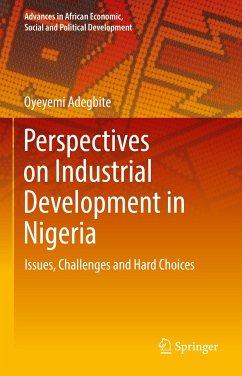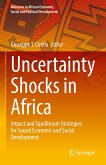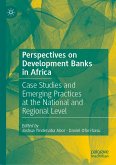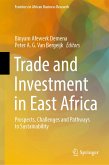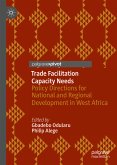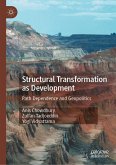Chapters take a retrospective look at government industrial development policies and programs, including the steel industry, agro-allied and forest-based industries, and the industrial estate development program. The book also discusses tariff and trade policies, incentives and disincentives to foreign direct investment (FDI) in the manufacturing sector, and small and medium enterprise (SME) development. The book concludes with a look at the recent drive towards regional integration as well as the potential impact of the Economic Partnership Agreement (EPA) between the European Union and sixteen countries of West Africa. Providing an exhaustive history of Nigeria's economic and industrial development, this volume will be of interest to researchers and students of African economics, development studies, and industrial organization, as well as policy makers in both the public and private sectors.
Dieser Download kann aus rechtlichen Gründen nur mit Rechnungsadresse in A, B, BG, CY, CZ, D, DK, EW, E, FIN, F, GR, HR, H, IRL, I, LT, L, LR, M, NL, PL, P, R, S, SLO, SK ausgeliefert werden.

